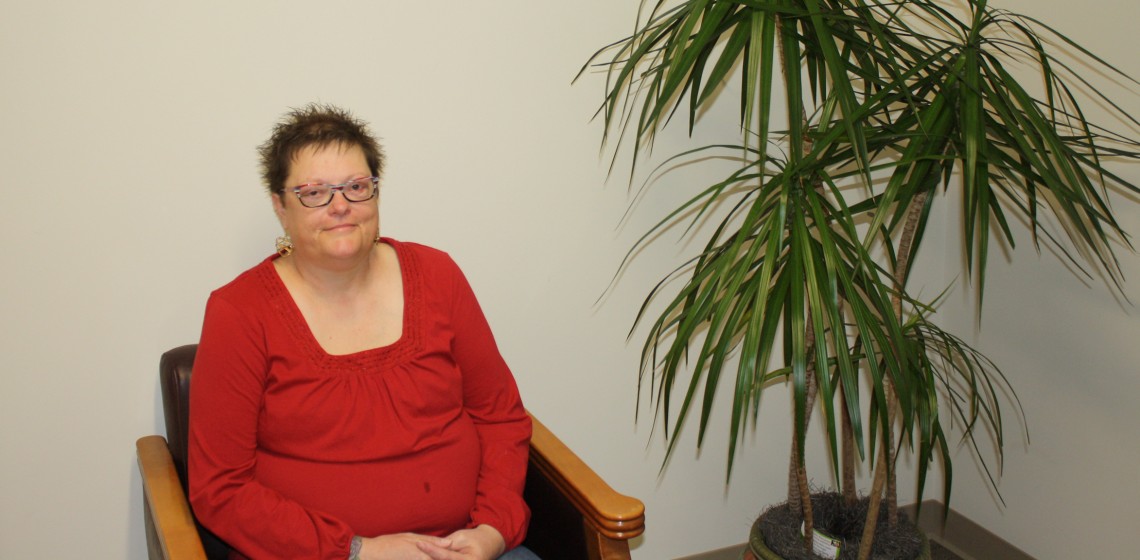
Published on September 11, 2018
About two to three years ago, Jullie Barrett, who lives in Rolla and was raised in Waynesville, visited her doctor, who believed Barrett’s blood sugar was too high based on her symptoms.
Barrett was given an A1C test, a common blood test used to diagnose diabetes, and the results showed her average blood sugar level over three months was about 10 percent (approximately 250 mg/dL). A normal hemoglobin A1C level is below 5.7 percent (less than 115 mg/dL).
Because her A1C level was so high, her doctor thought Barrett had possibly had diabetes since she was a child.
Barrett has type 2 diabetes, the most common form of this chronic illness. Also called hyperglycemia, type 2 diabetes occurs when a person’s body does not properly use insulin, a hormone that regulates blood sugar. Type 2 diabetes does not allow the body to use sugar effectively for energy.
“When I found out I was diabetic, it was shocking,” she says. “I thought, ‘This can’t be.’” Barrett has a family history of diabetes. Her mother has the disease as did one of her grandmothers.
Unlike a broken arm or difficulty breathing, diabetes symptoms are not always obvious. Barrett says she had numbness in her legs and damage to the retina of her eyes, both believed to be the long-term result of diabetes.
After being diagnosed, Barrett initially was referred to a dietitian. “I thought I had a handle on how to eat,” Barrett recalls. However, no matter what she tried, she could not lower her blood sugar levels.
Barrett’s physician eventually placed her on insulin and referred her to the Phelps Health Diabetes Self-Management Education and Support (DSMES) program, where she met with Pati Cox, MEd, BSN, RN, a diabetic nurse educator.
“I would definitely recommend the Phelps Health DSMES program. I wish I would have paid attention to my doctor sooner." - Jullie Barrett
“It was really eye-opening,” Barrett says of meeting with Cox and taking part in the Diabetes Self-Management Education and Support services at Phelps Health. “I learned so much, and it really helped me understand things like what happens when I eat certain foods and how I should be eating.”
When she first started going to classes at the Phelps Health DSMES, Barrett did not know what to expect.
“However, I got the feeling from the diabetes nurse educators that they really cared about me and put me at ease,” she says.
Barrett has completed the 10-hour program, which is divided into four classes, each focusing on different areas of diabetes, such as creating healthy meal plans, managing blood sugar levels and using a glucose meter, among other topics.
Because of her nerve damage, Barrett cannot walk much, but she enjoys swimming and riding bikes. Six months before taking classes through the Phelps Health DSMES, she bought a new bicycle. “I ride it a lot more often now that I’m feeling better,” Barrett says, adding that she has more energy. Barrett can ride 25 miles or longer on a weekend day.
Additionally, she has made changes to her meals. “Before, I was not eating as well as I should have been. Now, my breakfast meals are about 75-80 percent vegetables,” she says. She also reports that she has lost over 50 pounds on her journey, which has aided in lowering her blood sugars.
Barrett began taking insulin around April of 2017, and while she still uses insulin, she has reduced the amount she uses due to her ability to better manage her diabetes with healthy eating, exercise and recognizing complications that call for immediate attention from her primary care provider.
Barrett continues to follow up with her physician and the Phelps Health diabetes nurse educators. “I would definitely recommend the Phelps Health DSMES. I wish I would have paid attention to my doctor sooner,” Barrett says.
For More Information
For more information about Diabetes Self-Management Education and Support services at Phelps Health, talk to your primary care provider, call (573) 458-7314.